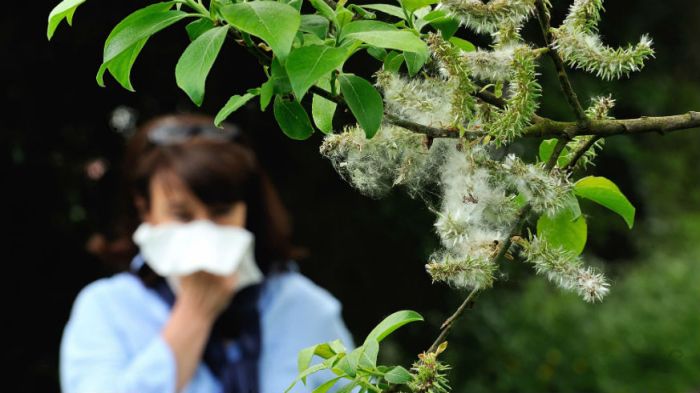To put it lightly, this time of year is absolutely brutal for people with seasonal allergies. Normally, walking down a street lined by trees would be a pleasant experience. But in the early stages of summer — AKA, allergy season— sidewalks that run through such lush terrain can become pollen caked death traps. And forget sleeping with a cracked window to get a nice fresh breeze at night. That is a one way ticket to waking up with a puffy face, runny nose and throat full of who knows what. In fact, clearing your throat and trying not to lose your voice can be a constant struggle. So what can you do to make sure your voice remains in good shape this allergy season?

[Photo credit: iStock]
Losing your voice to allergy season
So aside from having to clear your throat after having a runny nose both day and night, why does your voice seem to constantly give out during allergy season? Well, it’s actually the result of a combination of few different factors. If you are allergic to things like pollen, mold, dust, or pet dander, these allergens can cause your throat to swell up which can cause your throat to become horse much like a sore throat.
If that wasn’t enough, many of the medications on the market used to combat a runny nose and teary eyes can also dry out your throat as a side effect. Thus, creating a vicious cycle that can wreak havoc on your vocal chords. Forget blowing your friends’ minds at karaoke with that rendition of “Livin’ on a Prayer” you’ve been working on all winter. They’ll never look at you the same once you try to croak out those high notes. So what can you do?
Keeping your voice in good shape
In order to not lose your voice, the name of the game is making sure your vocal chords remain lubricated while clearing your throat of mucus build ups. It’s a tricky tightrope to walk. But according to Dr. S. Brett Heavener, an Otolaryngologist at Charlotte Ear Eyes Nose and Throat Associates, it can be done with the right kind of medication.
“There are many treatment options for allergies,” explained Dr. Heavener in a blog post by CEENA. “For professional voice users, topical medications like nasal steroids and nasal antihistamines seem to work better since they have less of a drying effect on the throat and voice.”
So if you are losing the battle of keeping your voice this allergy season, make sure to look for nasal sprays and avoid powerful pills with antihistamines that will not only dry up your runny nose, but will dry your throat as well.



















